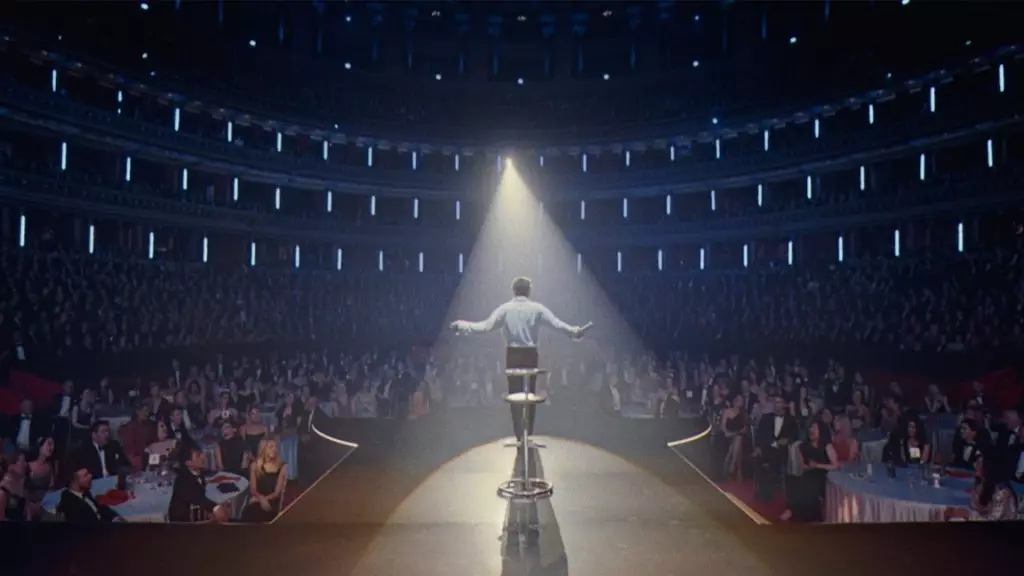The entertainment world was recently shaken by the sudden passing of Liam Payne, a beloved member of the iconic boy band One Direction. The news struck Robbie Williams particularly hard, as he expressed in an emotional interview with Deadline. Reflecting on the grief that has enveloped not only the fans but also those who knew Payne personally, Williams articulated the depth of his sorrow. He described feeling “sat in depression, and sat in sadness,” signaling that the loss resonated profoundly with him. His comments underscore a shared vulnerability felt within the entertainment community, amplifying the urgent need to reassess the societal pressures that accompany fame.
Williams didn’t merely mourn the loss of a friend; he took the moment to challenge society on how it handles celebrity culture. His lament, “Nothing seems to change and if it isn’t me, then who?” forms a potent rallying cry for reform in how fame is perceived and managed. The glitz and glamour that surround celebrities often mask a much darker reality, one that Williams bravely highlighted. He urged people to acknowledge the collective responsibility to foster a more supportive environment for artists, indicating that inaction makes society complicit in perpetuating the issues that plague public figures.
The death of Payne, who tragically fell from a balcony at just 31 years of age, sends ripples of grief that touch numerous lives—fans, peers, and family alike. Williams’ assertion that “we are the problem if we don’t” necessitates a fundamental shift in perspective. It’s no longer merely a celebrity issue; it’s a societal issue that demands our earnest attention and thoughtful discourse.
Williams’s connection to Payne and One Direction runs deeper than mere admiration. He was just 16 years old when he first stepped into the spotlight with Take That, a moment that parallels Liam’s own journey into fame. Moreover, as a mentor on The X-Factor a decade later, Williams shared a unique bond with the group, even if his role was more one of camaraderie than director. His reflections on their shared experiences reveal the often-overlooked emotional toll such a lifestyle can impose.
In his touching tribute on Instagram, Williams detailed the uncertainty he felt upon hearing about Payne’s passing, emphasizing that the shock left him grappling with confusion and sadness—a poignant reminder that no one is immune from the emotional struggles tied to fame. He spoke nostalgically about their time together, where humor and light-hearted banter allowed for a fleeting interface with joy amidst the looming pressures of their careers.
Amidst this turmoil, Robbie Williams also highlighted the courageous stance of fellow artist Chappell Roan, who has been vocal about the culture of exposure that often undermines artists’ well-being. Williams praised Roan for pushing back against these norms, revealing a burgeoning awareness amongst celebrities regarding their shared struggles. It’s a parallel journey of self-advocacy, with Roan’s efforts representing a new generation’s response to the flaws of celebrity culture.
Williams contrasted his current understanding with his experiences in the ’90s, a time when expressing vulnerability was rarely met with understanding. His retrospective acknowledgment of the criticism he faced in the past for voicing his concerns serves as a significant reminder of the long-standing stigma attached to vulnerability within the entertainment industry. “This is not a fame problem, this is a human problem,” he stated, echoing a critical shift in understanding that sidesteps the glorification of celebrity.
The tragic loss of Liam Payne should serve as more than a moment of mourning; it must catalyze important conversations surrounding mental health, fame, and societal responsibility. Robbie Williams’s heartfelt reflections bring urgent attention to the underlying issues that often remain hidden behind dazzling facades. As society grapples with this collective grief, an expectation emerges for change: for individuals, for the music industry, and for fans worldwide. Only by acknowledging and addressing these complex dynamics can we hope to create a more compassionate and understanding environment for those living within the spotlight.
